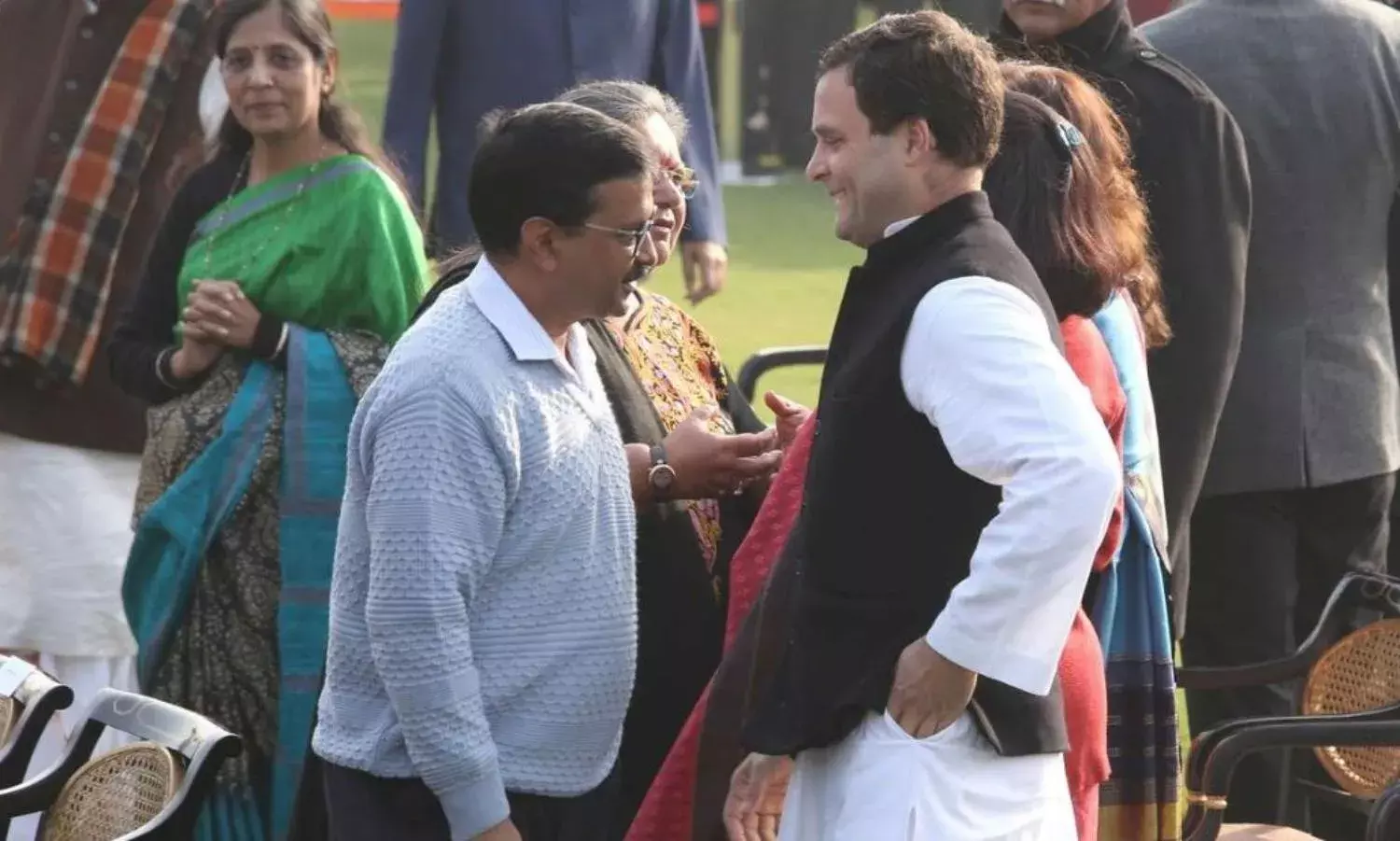Yes, No, Maybe...Congress and AAP Defy Opposition Unity As the Clock Ticks
Talks on between PC Chacko and Sanjay Singh

NEW DELHI: Social media of course cannot stop making fun of the Congress party and Aam Aadmi Party’s inability to take a decision on seat-sharing in Delhi but for the Opposition it is no laughing matter. As the difference is between, as one senior said, “7-0 or 0-7” against the Bharatiya Janata Party.
The BJP holds all seven seats here. And will win all seven again if the two Opposition parties fail to settle their differences ---that incidentally are not about issues but about number of seats---it will sweep this largely pro-Narenda Modi capital yet again. Opposition leaders like Sharad Yadav and Chandrababu Naidu have made this clear to both Congress president Rahul Gandhi and AAP chief Arvind Kejriwal but as an opposition MP remarked, “sense seems to be finding it difficult to make its way into their brains.” In fact the opposition leaders came out with a 3-3-1 formula, three seats each for AAP and Congress and one for a neutral high profile candidate like Yashwant Sinha.
There was a glimmering of hope a few weeks ago, just before the election dates were announced, that the two parties would enter into an alliance. This was dispelled quickly by former chief minister Sheila Dikshit who has been rushing around to ensure that this alliance does not happen. After opposition leaders intervened the Congress top brass decided to consult its workers using the Shakti App. This reportedly favoured an alliance, and talks were resumed. But these ended in a stalemate.
To cut a long story short, the two parties are still “talking”. And the optimists within ---on strict condition of anonymity--- are optimistic that the die will be cast soon with AAP getting four seats and the Congress party three. This without giving seats to AAP as it has been demanding in Haryana and Punjab. The Haryana Congress is willing to give one seat to AAP that it has asked for but not the three that it wants for its ally Jannayak Janta Party in the state. In Punjab, chief minister Amrinder Singh has put his foot down, making it very clear that he will not accommodate AAP in his state under any circumstances.
So now Kejriwal is left with Delhi. And both the opposition parties, under pressure from civil society and other political leaders, with the decision whether they will ally to win some, or contest separately and win none. And the Congress has deputed P.C Chacko and AAP Sanjay Singh to find a way out. Both have met twice, both are sending each other messages, both ---say the leaders---are in constant touch and there should be a decision soon.
Not a difficult decision, except that big egos are involved, and no one is willing to relent. Significantly, in the seven Lok Sabha constituencies---except for West Delhi---the combined vote share of the Congress and AAP in the 2014 polls was more than the record number of votes secured by the BJP candidates. And this was at the height of the Modi wave. Subsequently AAP got a majority in the Assembly elections and the Congress is currently happy with its slightly improved civic polls performance. But in parliamentary elections where the last poll figures count, AAP was second to the BJP in all constituencies, and the Congress third. In some seats a poor third.
In South Delhi won by Ramesh Bidhuri who is the BJP candidate in these polls as well, AAP secured 35.46% of the vote share and the Congress 11.36, totalling 46.8% as against the BJPs 45.2%. In West Delhi the combined vote was 42.71% as against BJPs 48.30%.
In the other five seats however, while AAP candidates were substantially ahead of the Congress party combined vote shares exceeded 50% in North West and North East Delhi constituencies. While in New Delhi, Chandni Chowk (where Congress partys Kapil Sibal 17.94% of the vote share as against AAPs 30.71%), and East Delhi the combined vote of AAP and Congress was around 48%, a couple of percentage points or so in each case against the winning BJP MPs. This was at the height of the Narendra Modi wave sweeping Delhi and India.
The elections for Delhi are on May 12, less than a month away. And the decision has still not been taken. Will there be an alliance? And the response depends on the leader one is talking to in both parties that are divided between the ‘yes’ and the ‘no’, positions hardening as the clock ticks.


